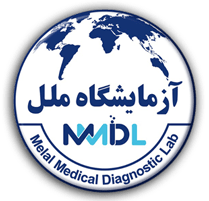Autoimmune thyroiditis is an inflammatory condition of the thyroid gland that results from the interaction between genetic variants that promote susceptibility and environmental factors. Making antibodies to thyroid antigens leads to two main pathogenic processes with opposing clinical results: Hashimoto’s thyroiditis and Graves’ disease. High iodine intake, selenium deficiency, stress, sex steroids, smoking, pregnancy, infectious diseases, and iodine- containing drugs and radiation exposure are signified in the development of autoimmune thyroiditis, primarily in genetically susceptible people.
Panel test:
● Thyroid stimulating hormone (TSH)
● free T4
● Antibody screening: TPO Antibodies: usually IgG1, IgG4.
● TSH Receptor Antibodies (TRAb): TSH-specific receptor controls thyroid function and cell growth. TRAb targets TSH receptors and competes with TSH for receptor binding. 3 classes (IgG antibodies):
o Stimulating antibodies – also known as LATS or thyroid-stimulating antibodies
o Blocking antibodies – may be etiology of hypothyroidism
o Neutral antibodies- This test measures both stimulating and blocking antibodies
● Thyroglobulin Antibodies
Algorithm:
References
1. Pearce EN, Farwell AP, Braverman LE. Thyroiditis. N Engl J Med 2003; 348:2646.
2. Kon YC, DeGroot LJ. Painful Hashimoto’s thyroiditis as an indication for thyroidectomy: clinical characteristics and outcome in seven patients. J Clin Endocrinol Metab 2003; 88:2667.
3. Paes JE, Burman KD, Cohen J, et al. Acute bacterial suppurative thyroiditis: a clinical review and expert opinion. Thyroid 2010; 20:247.
4. McLaughlin SA, Smith SL, Meek SE. Acute suppurative thyroiditis caused by Pasteurella multocida and associated with thyrotoxicosis. Thyroid 2006; 16:307.
McAninch EA, Xu C, Lagari VS, Kim BW. Coccidiomycosis thyroiditis in an immunocompromised host post-transplant: case report and literature review. J Clin Endocrinol Metab 2014; 99:1537.


